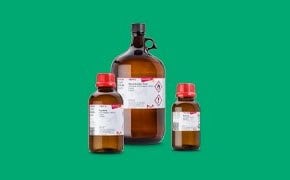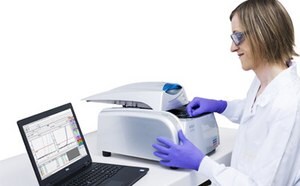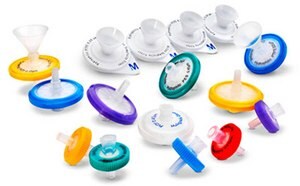Regulatory Compliance

Food & Beverage Regulatory Compliance
In the food industry, stringent standards regulate production environments to ensure consumer safety. The quality control of food products and their ingredients is regulated by local requirements and international standards to enhance quality and efficiency. Regulatory bodies are also influenced by consumer demand, as seen with public pressure to reduce salt and sugar in food products and to provide more sustainable food production.
Internationally aligned standards help food producers meet legal and regulatory requirements. Countries that don’t follow ISO, FDA, or USDA methods may have developed their own methods. A food safety management system adhering to ISO standards ensures identification and control of food safety hazards throughout the food process, benefiting industries in the food supply chain, consumers, and regulators.
Featured Categories
Your Solvent Source: Find the right fit with Supelco®, Sigma-Aldrich®, & SAFC® brands, covering analytical, lab, & biopharmaceutical uses. Order online.
Pathogen testing is a key component and critical success factor in effective food safety and process control programs. Explore our wide range of pathogen screening products that suit your needs.
Choose Millex® syringe filters: sterile, nonsterile formats. Wide membrane, housing options for HPLC, UHPLC, dissolution testing compatibility.
Hygiene monitoring ensures sanitization effectiveness with ATP testing, protein testing, or swab sampling for food safety and microbiology.
Food and beverage regulation is complex and determining the best methods for compliance and protection of staff and consumers can provide challenges. Below you will find additional information about industry-wide regulations split out by food groups, country and region to help with your compliance.
Importance of food regulatory compliance
Food regulatory compliance helps industries meet customer requirements, gain new customers, and supply safe food to local and global markets. It is responsible for risk management, safeguarding customers, compliance with complex legislation, and quality and safety throughout diverse supply chains. Food safety management programs enhance companies’ compliance with national and international regulatory frameworks, such as CODEX, while improving food safety culture and practices across geographies.
Food Safety Culture
Food safety culture is defined as the attitudes, benefits, practices, and values that demonstrate the importance of safety, quality, and product legality. An organization with clear prioritization from management, accessible and frequent training, and encouragement to its employees ensures commitment to making safe food.
Visit our document search for data sheets, certificates and technical documentation.
Related Articles
- EN ISO 11133:2014 standard mandatory for microbiological testing labs, ensuring quality in media preparation and testing.
- Kosher certification is a must have for most of the food industry. Segregation, cleaning, and cleanliness are key to meeting kosher requirements. Read our advice here.
- Vanilla Regulations – The Law and the Labeling of the World’s Most Popular Flavor
- A new HPLC-RI method is proposed for the analysis of Lactose in milk using a Chromolith® NH2 column.
- Guideline to calculate your working tolerance - Certified Standard Solutions (CRM)
- See All (13)
Related Protocols
- The International Organization for Standardization (ISO) published the revised EN ISO 21528-1 and EN ISO 21528-2 standards in 2017.
- The new EN ISO 22964:2017 standard specifies a horizontal method for the detection of Cronobacter spp. in food, animal feed and environmental samples.
- EN ISO 6579-1 standard specifies detection of Salmonella spp. in human consumption, animal feed, and environmental samples.
- ISO updated Listeria detection standards in 2017, specifying methods for food and environmental samples.
Find More Articles and Protocols
How Can We Help
In case of any questions, please submit a customer support request
or talk to our customer service team:
Email custserv@sial.com
or call +1 (800) 244-1173
Additional Support
- Chromatogram Search
Use the Chromatogram Search to identify unknown compounds in your sample.
- Calculators & Apps
Web Toolbox - science research tools and resources for analytical chemistry, life science, chemical synthesis and materials science.
- Customer Support Request
Customer support including help with orders, products, accounts, and website technical issues.
- FAQ
Explore our Frequently Asked Questions for answers to commonly asked questions about our products and services.
ISO 22000 is a certifiable standard that addresses food safety management system. It defines the guidelines and best practices an organization must follow to control food safety hazards and ensure safe consumption of food. FSSC 22000 includes and expands upon the ISO 22000 requirements.
Industry Regulation by Food Group
Learn more about food and beverage regulations by food group, including dairy, meat, plant-based meat, and beverages for different regions throughout the world.
Country Regulations for Food & Beverage
While there are global regulatory bodies that can be followed, different regions can also have country specific regulations for the food and beverages that is imported and produced in the country. Here you will find a non-exhaustive overview of regulatory agencies for specific countries grouped by region, North America, Europe and Asia & Australia.
To continue reading please sign in or create an account.
Don't Have An Account?



